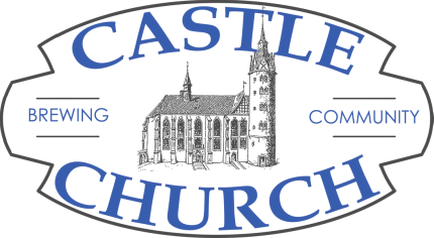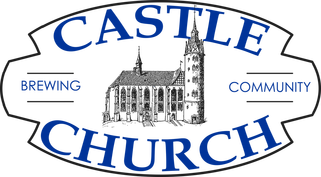|
Jared Witt l September 29, 2017 I love my generation. Can I just say that? All things being relative, I think we Millennials are thoughtful, evolved, emotionally intelligent, we mostly give the benefit of the doubt to people who are different than us, and we have high cultural IQs. And maybe the thing I value most in another human being, we’re funny. We have a sharp and caustic sense of humor. So much so, at times, our sarcasm presses the semantic borders of becoming a secret language. And this shouldn’t be confused with cynicism, as it’s sometimes perceived. We are sarcastic because we’ve noticed how you really shouldn’t care about everything that everyone says you should care about. And a lot of the things they say you shouldn’t care about, you should. Sarcasm is a tool which helps us dismiss the former so we can embrace the latter. We also suck in some ways, if maybe not all the ways they would have you believe. Understand, most of the Millennial bashing we hear in the Boomer driven media is baseless calumny. Lord only knows where they decided that the generation which has worked more unpaid internships, and studied longer for less professional benefit, and graduated with more student debt than any other somehow has an entitlement complex. But there is, I'm sad to say, a kernel of truth to some of what they say. We don’t show up when we say we will. We don’t organize well. We don’t commit. We are very good at pointing out how the world could be better but don’t always put much elbow grease into changing it. Jared Witt l September 14, 2017 Martin Luther had this phrase that would’ve unnerved a lot of stuffy church folk if he had uttered it yesterday, let alone in the 16th century, when he sparked the movement that would become all of western Protestantism. “Faith creates the deity.” He wasn’t trying to be heretical. He was just trying to take seriously what the Bible says about gods and our relationship to them. From Genesis forward, God, the creator, goes by many regional names and qualitative descriptions in the Hebrew scriptures. El Elyon (“God Most High”), Adonai (“Lord”), Elohim (“God of gods”), and El Shaddai (“the many breasted one”) are among the most popular. Then, as of Exodus, the mysterious YHWH, the unpronounceable anti-name given to Moses at the burning bush, begins to push those other identifiers to the side. By design, we don't really know anything about this unnameable name other than that it's associated with One who has a particular concern for the poor and the marginalized. As we move into the proto-Trinitarian thinking of the Christian Testament, Jesus becomes the face of God the Father (note that "father" is a metaphor, not an identifier) by the power of the Holy Spirit, but just like YHWH, that also seems to be a paradoxical refusal give us an easy handle on the divine. So, biblically, “God” is not a proper noun, despite how comfortable we get using the term that way. If the creator of the universe had a birth certificate, it would not read: Name - God Birthdate - 01/01/00 Birthplace - The Center Parents - Judith and Reginald van Nihilo Jared Witt l September 8, 2017 “The transition from the good [person] to the saint is a sort of revolution; by which one for whom all things illustrate and illuminate God becomes one for whom God illustrates and illuminates all things.” This is a quote taken from turn of the 20th century, English writer G.K. Chesterton in his book on the life of St. Francis. He goes on, “It is rather like the reversal whereby a lover might say at first sight that a lady looked like a flower, and say afterwards that all flowers reminded him of his lady” (St. Francis of Assisi). Given that this is a book about a saint, perhaps THE saint in the minds of many, Chesterton sounds as if he’s saying there is some discreet difference between a saint and the rest of us. In another blog sometime I’ll write about how Lutherans believe that all of us are saints and sinners at the same time, that sainthood isn’t something unattainably distinct from personhood, and how the saint part comes in is not at all by our own moral fortitude but entirely from the unconditional love of God, which we experience in bread, wine, water and words of forgiveness. Then I’ll write all about the transformative effect that realizing we are loved unconditionally tends to have on our lives. Catholics and Lutherans actually fought a lot on this point back in the day. It was a whole thing. |
Mashing in.On how Castle Church is stirring up a movement from a brewery in Florida. Archives
July 2018
|
Curated selection
- UK Online Casinos Not On Gamstop
- UK Online Casinos Not On Gamstop
- Casino Sites Not On Gamstop
- Best Non Gamstop Casinos UK 2025
- Casino Sites Not On Gamstop
- UK Online Casinos Not On Gamstop
- Non Gamstop Casinos UK
- Non Gamstop Casino Sites UK
- UK Casino Not On Gamstop
- Best Non Gamstop Casinos
- Online Casinos
- UK Casino Not On Gamstop
- Non Gamstop Casino
- Gambling Sites Not On Gamstop
- Migliore Casino Non Aams
- List Of UK Casino Sites
- UK Casinos Not On Gamstop
- Gambling Sites Not On Gamstop
- Best Non Gamstop Casinos
- Casino Not On Gamstop
- Betting Sites
- Non Aams Casino
- Migliori Siti Casino Non Aams
- Non Gamstop Casino
- Casino En Ligne
- Bitcoin Casinos
- Meilleur Site Casino En Ligne Belgique
- Meilleur Casino En Ligne Avis
- Site De Paris Sportif Bonus
- Paris Sportif Ufc Mma
- Siti Di Casino Online 2026
- Meilleur Casino En Ligne
- Casino En Ligne
- 50 Free Spin Senza Deposito
- Migliori Casino Online
- Meilleur Casino En Ligne France
- Nuovi Casino Non Aams
- Nouveau Casino En Ligne France
- Migliori Siti Casino Online
- Trusted Online Casino Malaysia

 RSS Feed
RSS Feed




